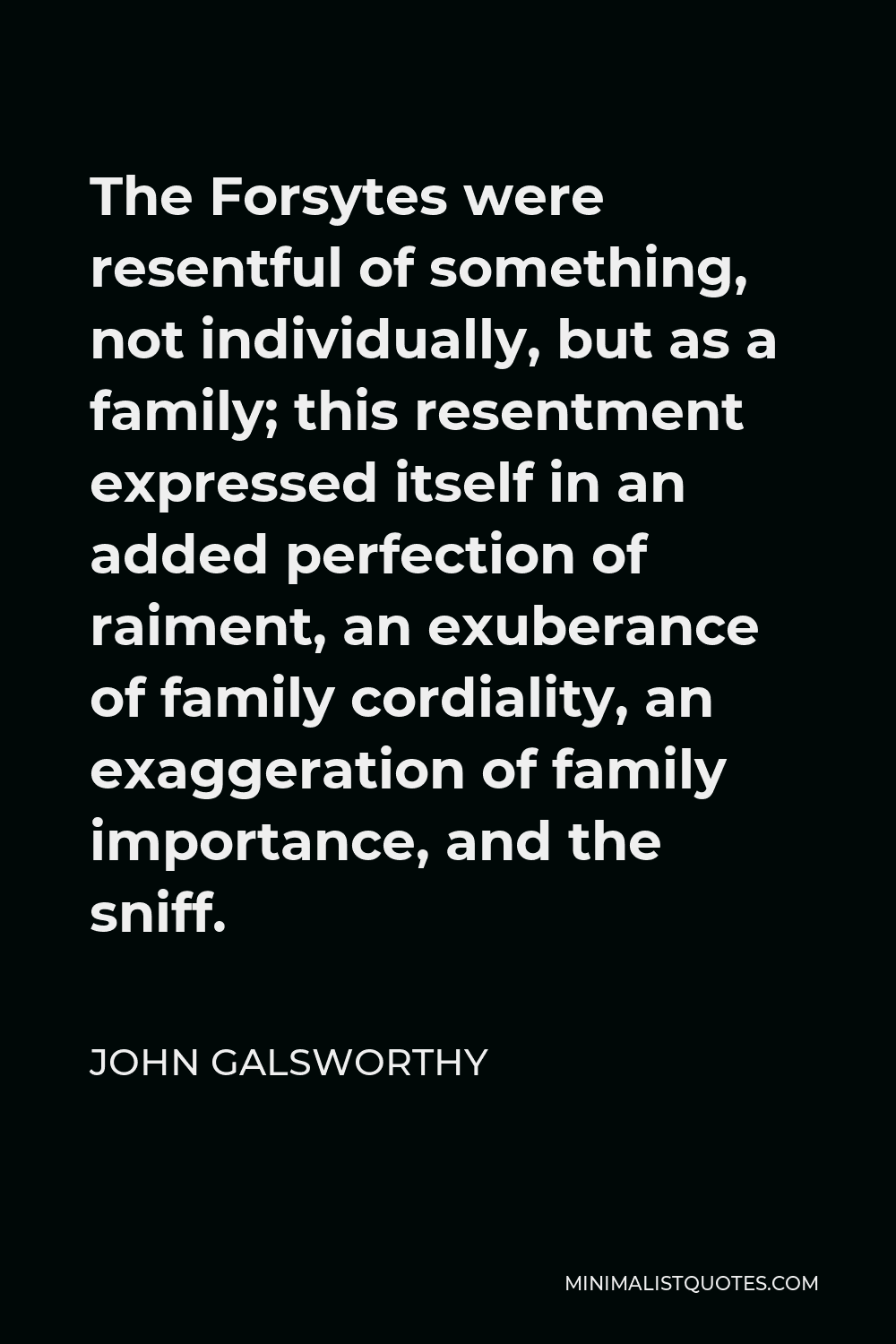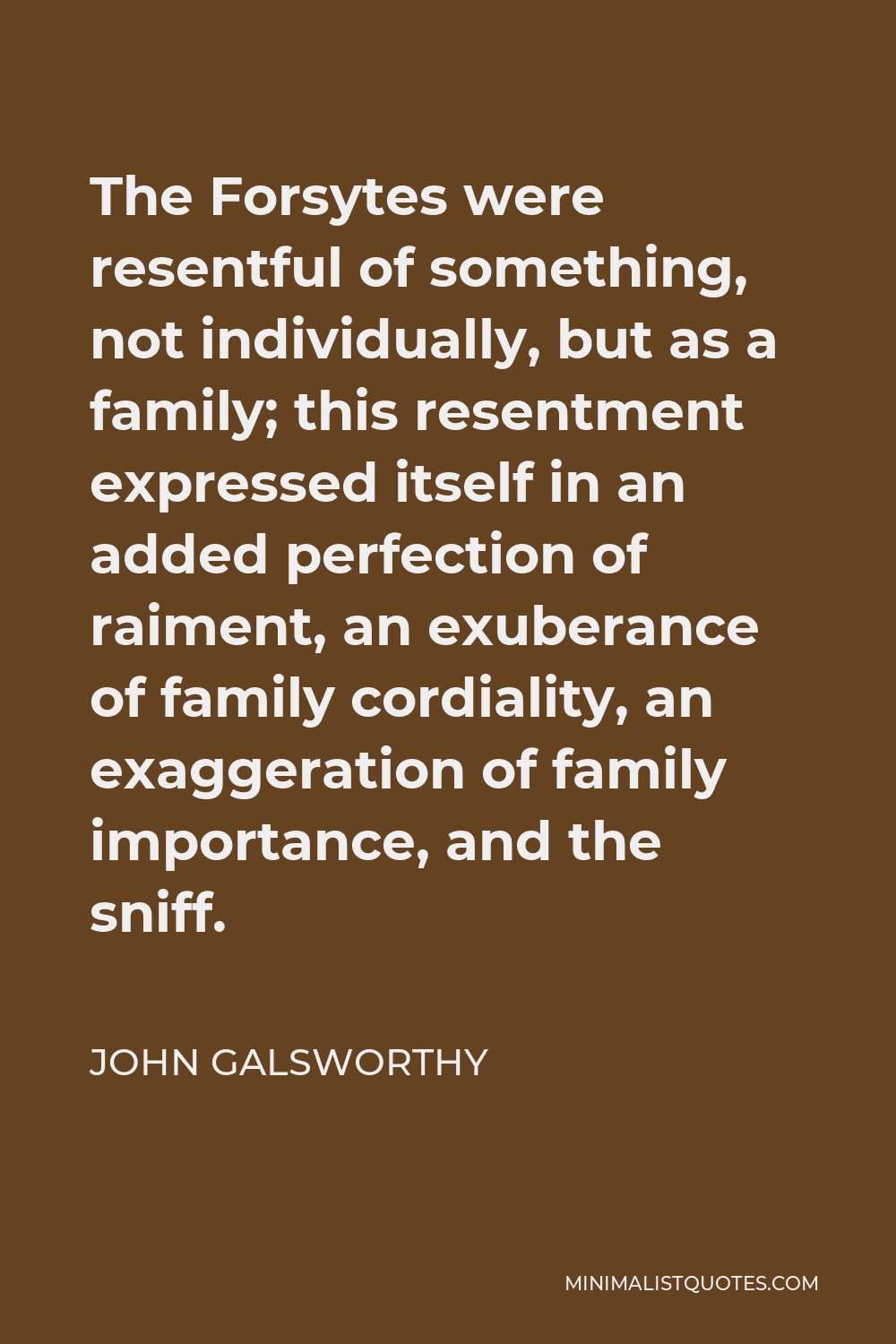Only out of stir and change is born new salvation. To deny that is to deny belief in man, to turn our backs on courage!
JOHN GALSWORTHYThe Forsytes were resentful of something, not individually, but as a family; this resentment expressed itself in an added perfection of raiment, an exuberance of family cordiality, an exaggeration of family importance, and the sniff.
More John Galsworthy Quotes
-





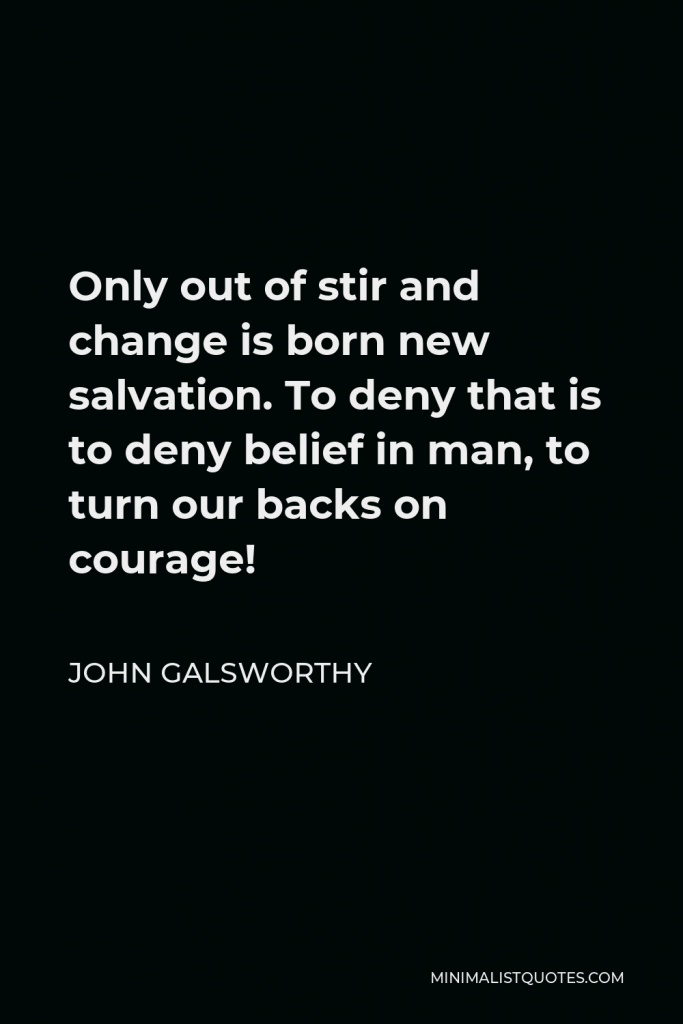

-







the biggest tragedy of life is the utter impossibility to change what you have done
JOHN GALSWORTHY -







The talked-about is always the last to hear the talk . . .
JOHN GALSWORTHY -







Justice is a machine that, when some one has once given it the starting push, rolls on of itself.
JOHN GALSWORTHY -







Looking back on the long-stretched-out body of one’s work, it is interesting to mark the endless duel fought within a man between the emotional and critical sides of his nature.
JOHN GALSWORTHY -





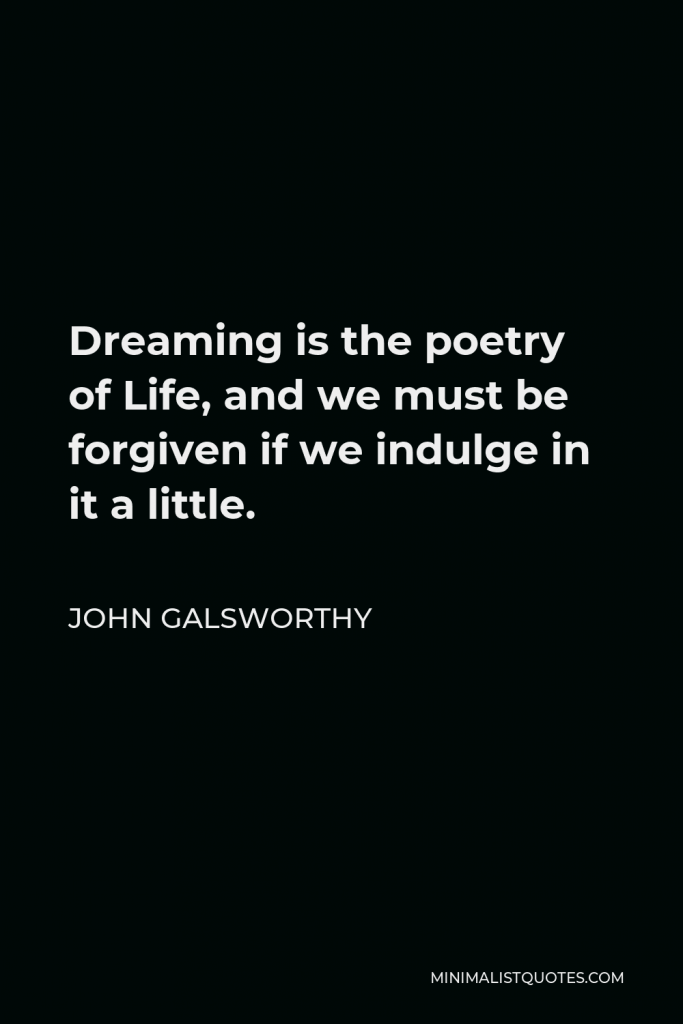

Dreaming is the poetry of Life, and we must be forgiven if we indulge in it a little.
JOHN GALSWORTHY -





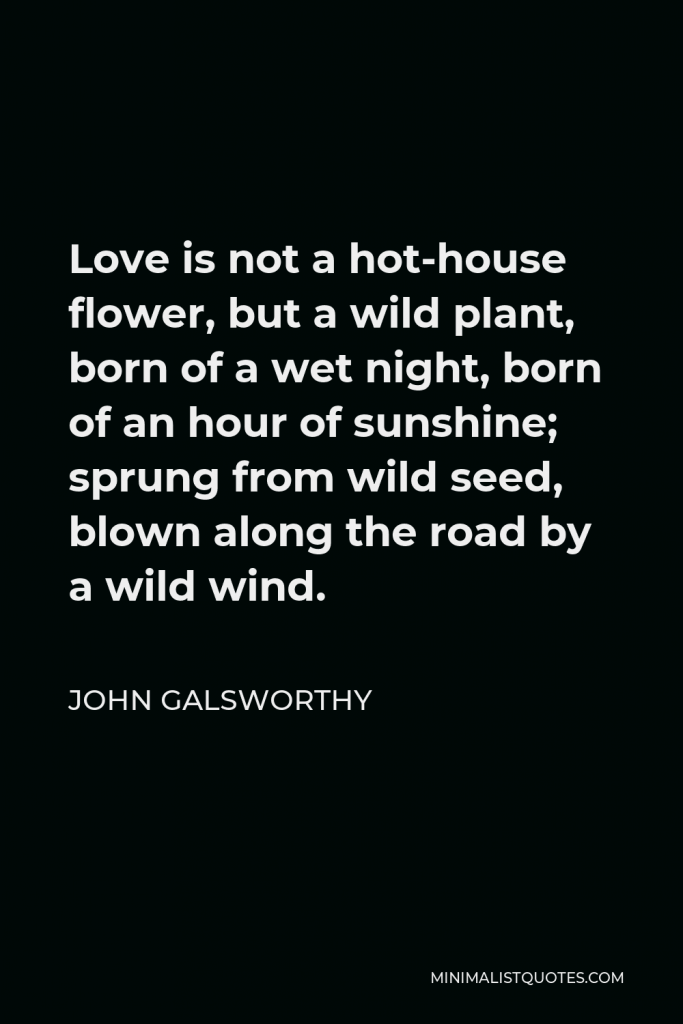

Love is not a hot-house flower, but a wild plant, born of a wet night, born of an hour of sunshine; sprung from wild seed, blown along the road by a wild wind.
JOHN GALSWORTHY -





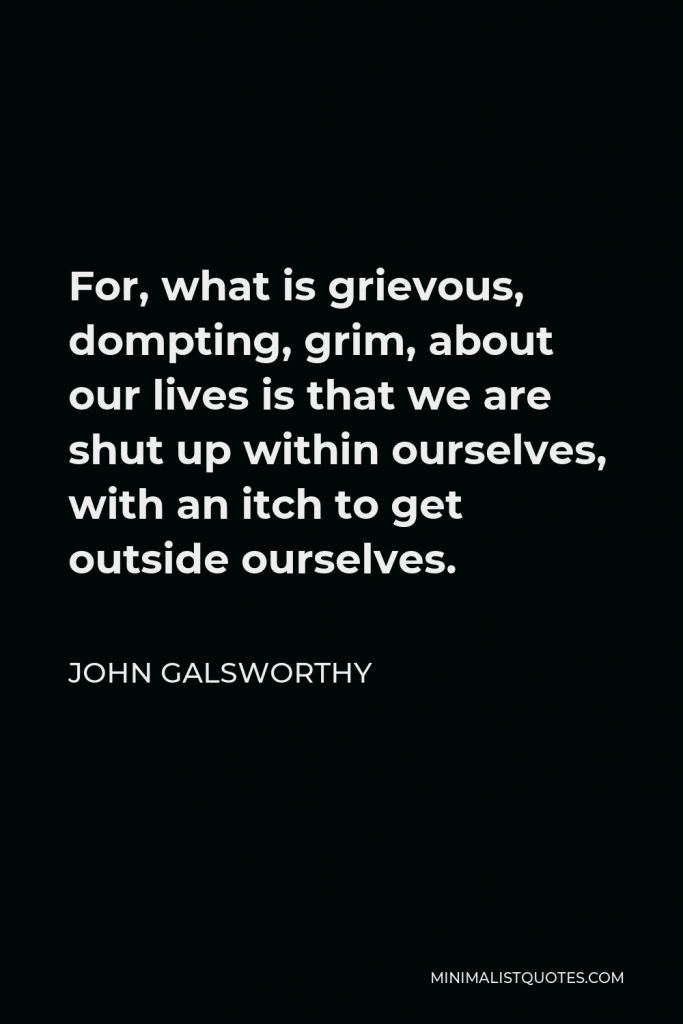

For, what is grievous, dompting, grim, about our lives is that we are shut up within ourselves, with an itch to get outside ourselves.
JOHN GALSWORTHY -





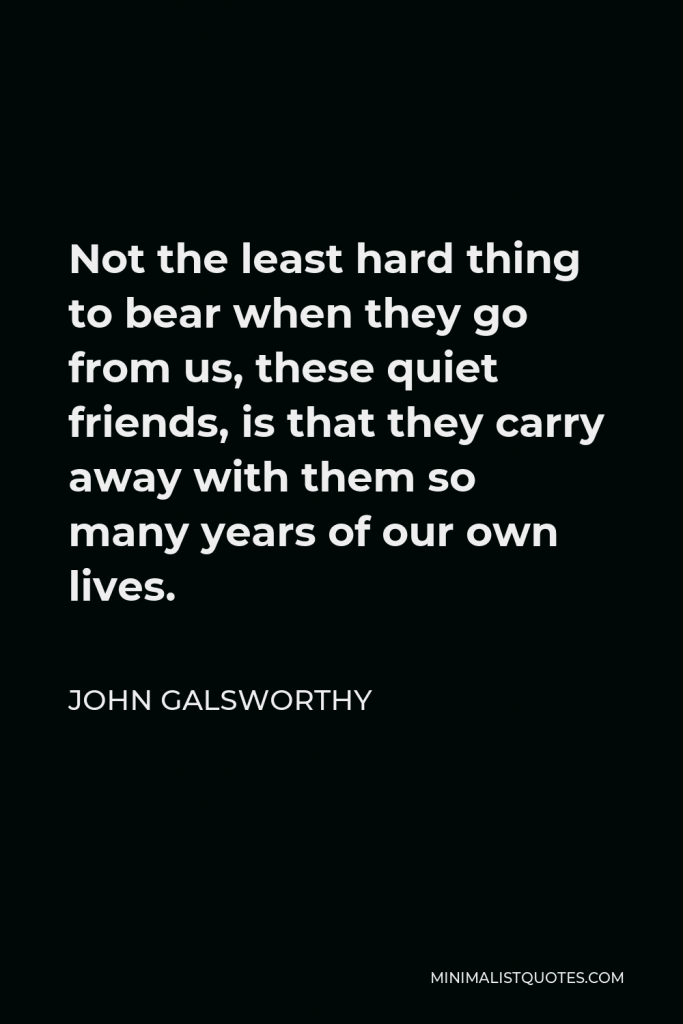

Not the least hard thing to bear when they go from us, these quiet friends, is that they carry away with them so many years of our own lives.
JOHN GALSWORTHY -







See what perils do environ those who meddle with hot iron.
JOHN GALSWORTHY -





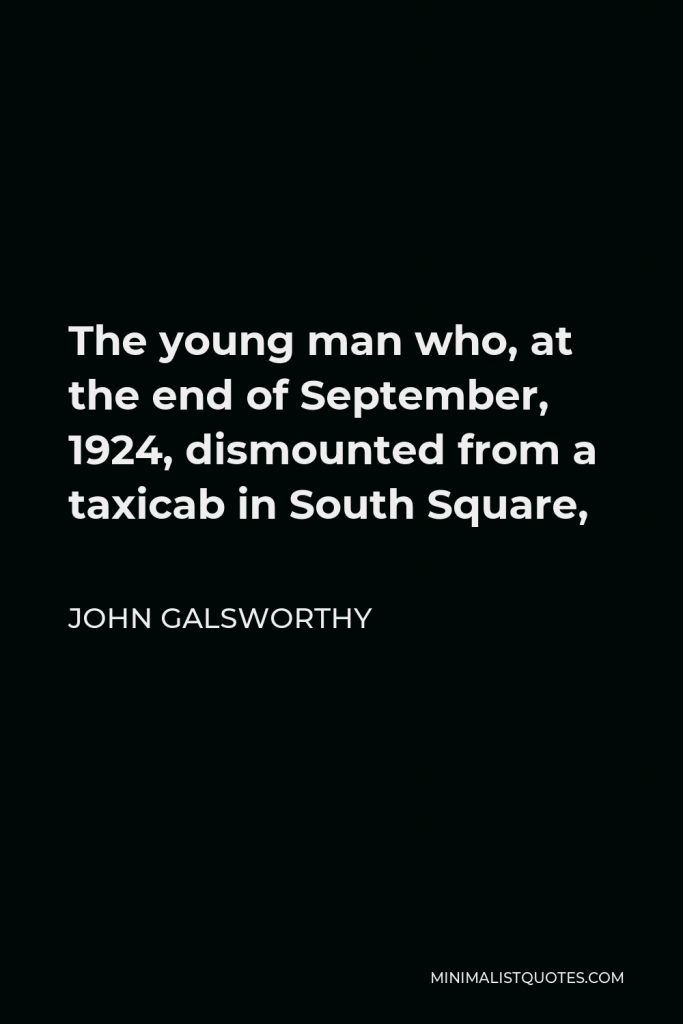

The young man who, at the end of September, 1924, dismounted from a taxicab in South Square,
JOHN GALSWORTHY -







The beginnings and endings of all human undertakings are untidy.
JOHN GALSWORTHY -





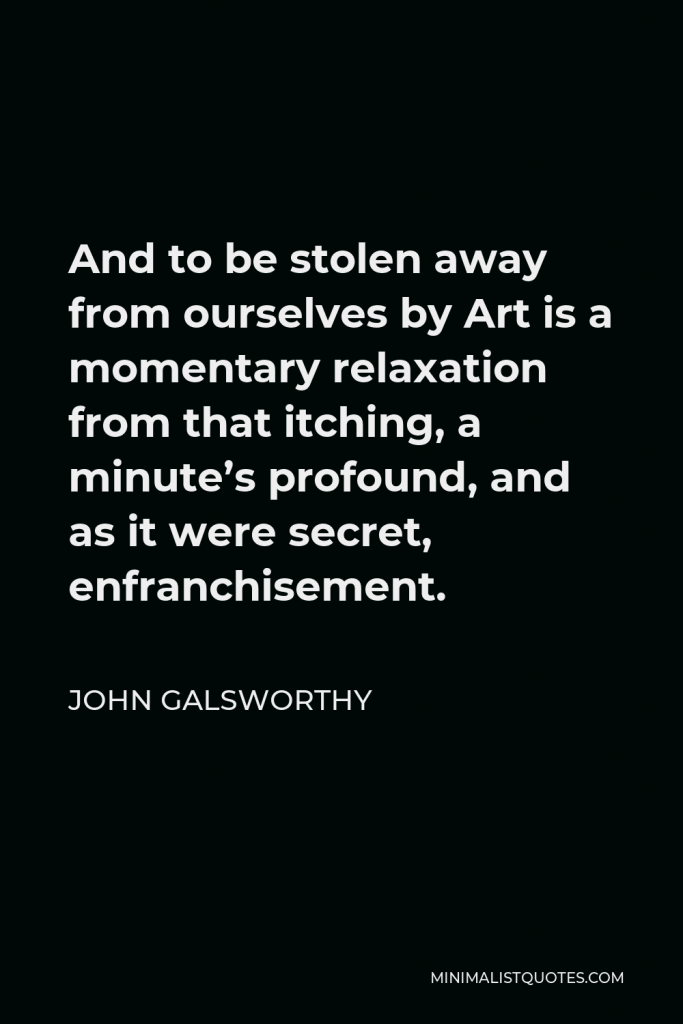

And to be stolen away from ourselves by Art is a momentary relaxation from that itching, a minute’s profound, and as it were secret, enfranchisement.
JOHN GALSWORTHY -





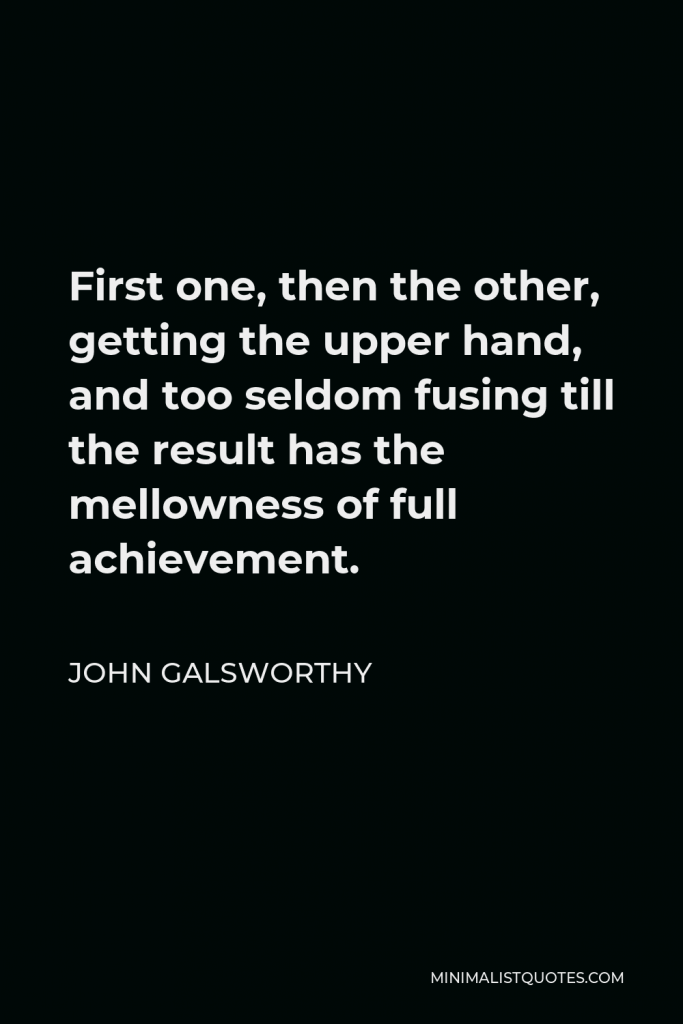

First one, then the other, getting the upper hand, and too seldom fusing till the result has the mellowness of full achievement.
JOHN GALSWORTHY -





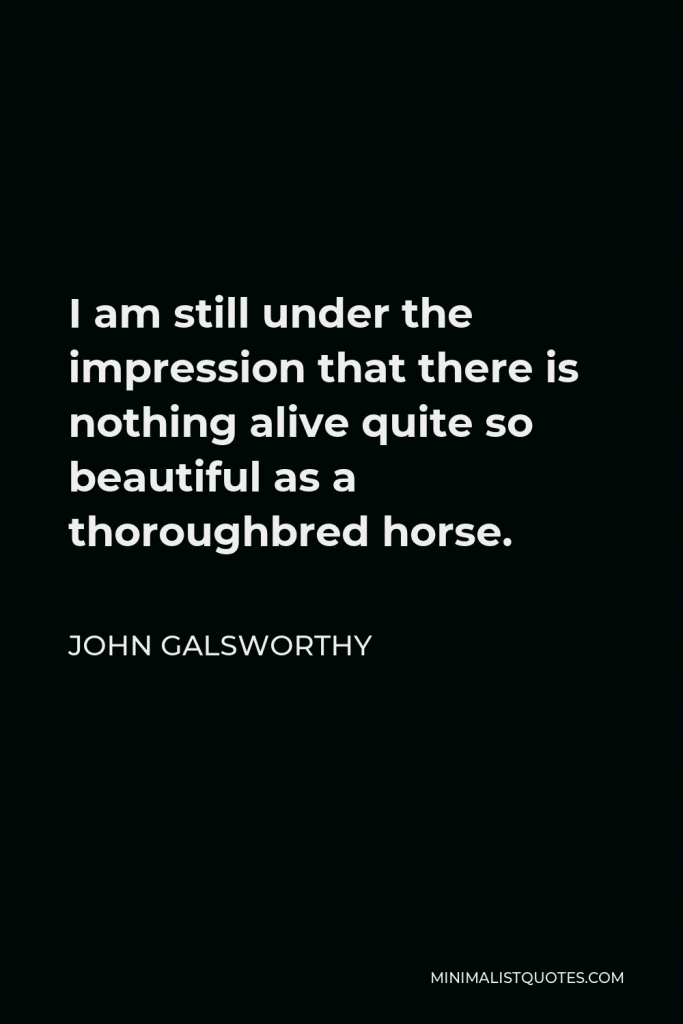

I am still under the impression that there is nothing alive quite so beautiful as a thoroughbred horse.
JOHN GALSWORTHY -







A faith that for modern man is becoming the only possible faith.
JOHN GALSWORTHY
